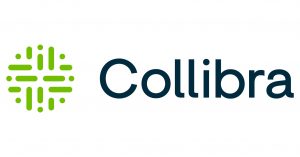When it comes to data governance, the best defense is not necessarily a strong offense.
Data governance, or the policies and processes that define how data can or should be used, ought to be focused on supporting an organization’s mission and its operational goals.
Unfortunately, many government organizations take a defensive approach, focusing governance efforts on compliance. This creates rigid organizational practices that leave agencies unable to adapt to changing circumstances.
The solution? Adaptive data governance. This flexible governance structure not only ensures compliance but also helps accomplish mission objectives amid change through empowering collaboration.
“Adaptive data governance shifts the onus from IT to a place of collaboration with business users, to enable people regardless of technical background to communicate around data to achieve outcomes with data in the context of constraints imposed by regulation, security and privacy,” said Aileen Black, Senior Vice President, Public Sector at Collibra, a leading data intelligence company.
Black outlined three ways that adaptive data governance can drive value for agencies.
1. GROW
Data governance doesn’t just impact data programs. It impacts the whole agency. To grow mission capabilities, the governance strategy must be flexible enough to meet the changing needs of the agency and its people.
“Adaptive governance enables leaders to select the appropriate governance style for different business scenarios,” Black said. This gives you the flexibility to be innovative and forward-thinking. It’s less about checking boxes and more about growing business value for the mission by using governance as a tool.
2. SAVE
When agencies can connect data governance practices to mission outcomes, they are likely to be more cost-efficient. With data governance, agencies can more easily identify the right data and analytics to ensure target outcomes.
Ensuring the data-to-business connection, adaptive data governance helps the IT and agency business teams align around the governance strategy and create a common language. When teams are united, agencies can extract more value from data from the beginning. IT operations and maintenance costs are reduced as technical staff spend less time simply managing data, resulting in agencies becoming more efficient in data operations.
3. PROTECT
Adaptive data governance helps agencies protect data and increase trust when data breaches and security issues are top of mind.
It’s impossible to completely avoid risk or prevent all security incidents. For the best outcome, risk and security must be embedded in the process. Adaptive data governance is best suited to do this because it is context-aware. It can address risk and security and fulfill mission objectives instead of the traditional strategy that governs all three separately. It leads to the most effective decision-making, which in turn increases trust.
“Collibra Data Governance allows organizations to create a shared data language to facilitate agile decisionmaking,” Black said. “With Collibra’s secure, scalable platform and automated governance and stewardship tasks, agencies can trust in their data and realize all of the benefits of adaptive data governance.”
This article is an excerpt from GovLoop’s recent guide, “Advancing the Art of Data Analytics.” Download the full guide here.






Leave a Reply
You must be logged in to post a comment.